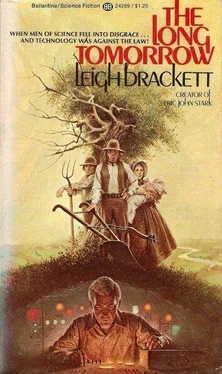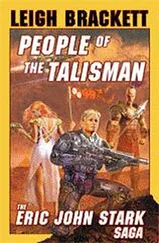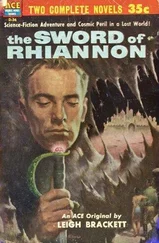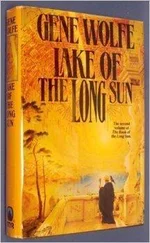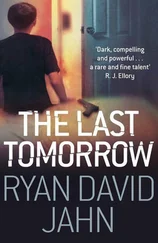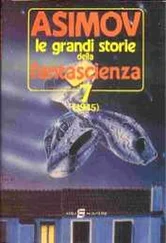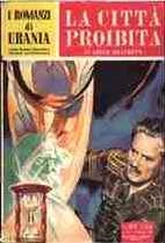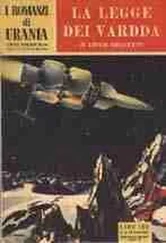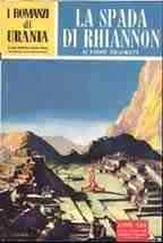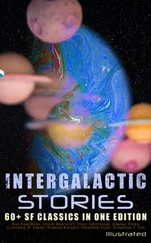“What?” said Len, who had been thinking his own thoughts.
“My horses. The wagon. Seems funny, after all these years, just to sit. I wonder if I’m going to like it.”
“I thought you were happy, going home.”
“I am. And high time, too, while most of my old friends are still around. But this business of leading two lives has its drawbacks. I’ve been away from Bartorstown for close onto thirty years and only been back once in all that time. Places like Piper’s Run seem more like home to me now. When I told them last fall I was quitting the road, they asked me to settle there—and you know something? I could have done it.”
He brooded, watching the men at work on the lock without really seeing them.
c
“I suppose it’ll all come back to me,” he said. “After all, the place you were born and grew up in—But it’ll seem funny to shave again. And I’ve worn these clothes so long—”
Water sucked and purled out of the lock and the barge sank slowly until you had to look up to see the top of the bank. The sun beat down, and no breeze stirred in that sunken pocket. Len half shut his eyes and drew his feet in under him because they were in the sun and burning.
“What are you?” he asked.
Hostetter turned his head and looked at him, “A trader.”
“I mean really. What are you in Bartorstown?”
“A trader.”
Len frowned. “I guess I don’t understand. I thought all the Bartorstown men were something—scientists, or machine makers—something.”
“I’m a trader,” repeated Hostetter. “Kovacs, he’s a river-boat man. Rosen is a good administrator and keeps the canal in repair and running smoothly because it’s vital to us. Petto, back there at Indian Ferry—I used to know Petto’s father, and he was a pretty good man in electronics, but the boy is a trader like me, except that he stays more in one place. There are only so many potential scientists and technicians in Bartorstown, like any community. And they need the rest of us to keep them going.”
“You mean,” said Len slowly, revising some deep-rooted ideas, “that all these years you’ve really been—”
“Trading,” said Hostetter. “Yes. There are over four hundred people in Bartorstown, not counting us outside. They all have to eat and wear clothes. Then there’s other things too, iron and alloys and chemicals and drugs, and so on. It all has to be brought in from outside.”
“I see,” said Len. There was a long pause. Then he said sadly, “Four hundred people. That isn’t even half as many as there were in Refuge.”
“It’s about ninety per cent more than there were ever supposed to be. Originally there were thirty-five or forty men, all specialists, working on this hush-hush project for the government. Then when the reaction came after the war and things began to get nasty, they brought in a lot of other men and their families, scientists, teachers, people who weren’t very popular on the outside any more. We’ve been lucky. There were a lot of other secret installations in the country, but Bartorstown is the only one that wasn’t discovered or betrayed, or didn’t have to be abandoned.”
Len’s hands tightened on his knees, and his eyes were bright. “What were they doing there—the forty men, the specialists?”
A kind of a peculiar look came into Hostetter’s face. But he only said, “They were trying to find an answer to something. I can’t tell you what it was, Len. All I can tell you is, they didn’t find it.”
“Are they still trying?” asked Len. “Or can’t you tell me that, either?”
“You wait till you get there. Then you can ask all the questions you want to, from the men who are authorized to answer them. I’m not.”
“When I get there,” Len murmured. “It sure sounds strange. When I get to Bartorstown—I’ve said it a million times in my mind, but now it’s real. When I get to Bartorstown.”
“Be careful how you throw that name around.”
“Don’t worry. But—what’s it like there?
“Physically,” said Hostetter, “it’s a hole. Piper’s Run, Refuge, Louisville over there, they’ve all got it beat a mile.”
Len looked at the pleasant village strung out along the canal, and at the wide green plain beyond it, dotted with farmsteads and grazing cattle, and he said, remembering a dream, “No lights? No towers?”
“Lights? Well, yes and no. Towers—I’m afraid not.”
“Oh,” said Len, and was silent. The barge glided on. Pitch bubbled gently in the deck seams and it was an effort to breathe. After a while Hostetter took off his broad hat and wiped his forehead and said, “Oh no, it’s too hot. This can’t last.”
Len glanced up at the sky. It was cloudless and intensely blue, but he said, “It’s going to break. We’ll get a good one.” He turned his attention back to the village. “That used to be a city, didn’t it?”
“A big one.”
“I remember now, it was named after the king of France. Mr. Hostetter—”
“Hm?”
“Whatever happened to those countries—I mean, like France?”
“They’re just about like us—the ones on the winning side. Lord knows what happened to the ones that lost. The whole world has jogged back to pretty much what it was when Louisville was this size before, and this canal was first dug. With a difference, though. Then they were anxious to grow and change.”
“Will it always stay like this?”
“Nothing,” said Hostetter, “ever stays always like anything.”
“But not in my time,” Len murmured, echoing Judge Taylor’s words, “nor in my children’s.” And in his mind was the far, sad sound of the falling down of high buildings built on clouds.
“In the meantime,” said Hostetter, “it’s a good world. Enjoy it.”
“Good,” said Len bitterly. “When it’s full of men like Burdette, and Watts, and the people who killed Soames?”
“Len, the world has always been full of men like that, and it always will be. Don’t ask the impossible.” He looked at Len’s face, and then he smiled. “I shouldn’t ask the impossible either.”
“What do you mean?”
“It’s a matter of age,” said Hostetter. “Don’t worry. Time will take care of it.”
They passed through the lower locks and out onto the river again below the great falls. By midafternoon the whole northern sky had turned a purplish black, and a silence had fallen over the land. “Line squalls,” said Kovacs, and sent Len and Esau down to stoke again. The barge went boiling downstream, her paddles lashing up the spray. It got stiller yet, and hotter, until it seemed the world would have to burst with it, and then the first crackings and rumblings of that bursting made themselves heard over the scrape of the shovels and the clang of the fire door. Finally Sam put his head down the ladder and shouted to Charlie to let off and bank up. Drenched and reeling, Len and Esau emerged into a portentous twilight, with the sky drawn down over the country like a black cowl. They were tied up now in midstream in the lee of an island, and the north bank rose up in a protecting bluff.
“Here she comes,” said Hostetter.
They ducked for the shelter of the house. The wind hit first, laying the trees over and turning up the lighter sides of their leaves. Then the rain came, riding the wind in a white smother that blotted everything from sight, and it was mixed with leaves and twigs and flying branches. After that was the lightning, and the thunder, and the cracking of trees, and then after a long time only the rain was left, pouring down straight and heavy as though it was tipped out of a bucket. They went out on deck and made sure everything was fast, shivering in the new chill, and then took turns sleeping. The rain slacked and almost stopped, and then came on again with a new storm, and during his watch Len could see lightning flaring all along the horizon as the squalls danced on the forward edge of the cool air mass moving down from the north. About midnight, through diminished rain and distant thunder, Len heard a new sound, and knew that it was the river rising.
Читать дальше
